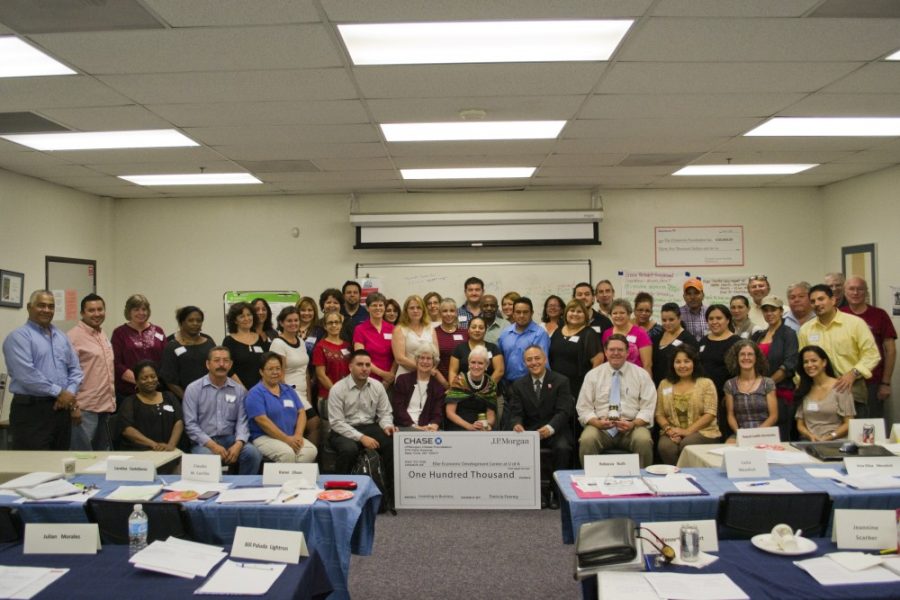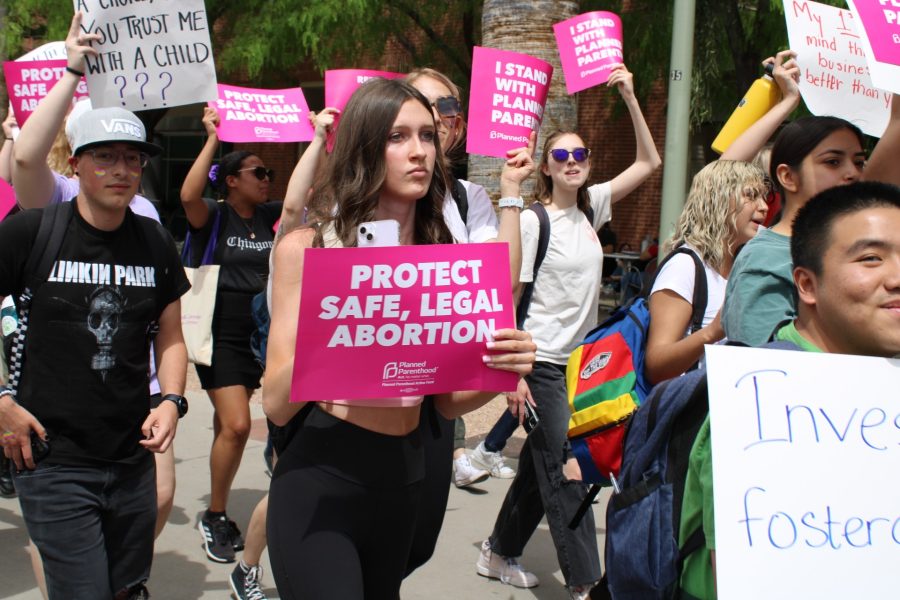The Eller College of Management launched their new economic development program this semester by providing six workshops in the city of South Tucson for entrepreneurs and aspiring business owners.
Each of the six classes focuses on a different aspect of running a business, including management, marketing, sales, accounting, finance and legal topics, along with secrets for success. The classes are a condensed version of Eller courses and are taught by UA professors.
“A lot of the members, they actually don’t have their business yet. Right now they have a vision,” said Carlos Fimbres, a graduate student in accounting and the program manager’s assistant. “It’s actually a really good program for them to actually have an idea of how to start.”
The program started when Cree Zischke, vice president of region executive global philanthropy for JP Morgan Chase and Company, asked Leslie Eldenburg, accounting professor at Eller, to create an economic development program similar to the one in the University of Washington in Seattle.
Zischke partnered with faculty and staff at Eller, and with Peggy Hutchison, the chief executive officer of the Primavera Foundation — an organization with a number of programs that are meant to help people out of poverty — to start the program.
JP Morgan Chase donated $100,000 to launch the program and recently matched that amount to maintain and grow the program in South Tucson.
The organization also restricted the program to the city of South Tucson because of its 17-percent unemployment rate and the lowest per capita income in southern Arizona, Zischke said. The grants help pay for instructors’ salaries and pay scholarships for business owners who live in South Tucson, he added.
Eldenburg and Idelfonso Chavez, the program’s manager, said they visited the University of Washington and met with the founders of their Business and Economic Development Center.
Fimbres and Chavez then reached out to small business owners in South Tucson by conducting a survey to see if any of them would become involved with the program. Although some seemed reluctant, Fimbres said he saw a pretty good turnout at the classes.
“We definitely want to teach them what they need and I think we’re doing a pretty good job tailoring classes,” Fimbres said.
The number of attendants has grown in the first three classes from 45 to more than 50 community members. These community members fall into a diverse range of ages and ethnicities, and not all of them live in South Tucson. Ismael Treviño has lived in Sahuarita, Ariz. for about a year and wants to start a business selling devices that produce alternative renewable energy.
Treviño came up with the idea of a renewable energy business about six months ago, he said. Apart from attending Eller’s business classes, he has also taken design classes to learn about the actual products he’s looking to sell.
Carolina Castellanos, 20, makes and sells cakes from home with her mother and said she wants to learn how to become a licensed business owner. Her mother was excited to learn that Castellanos was attending these classes and trying to find a separate place to start a legitimate cake business, she added.
“If I did learn about more financing, and all that stuff, I think it’d be a lot better and easier to keep track of our income,” Castellanos said.
Within the next two weeks, Eller students and professionals from the community will participate in business consulting with six small businesses. Each business owner will have a team of two students and one business professional to consult with. The consulting team will work with the business on a volunteer basis.
Fimbres said he believes this program will also give students a different perspective of Tucson since most students stay within the university area.
“A lot of the students that come here don’t actually know Tucson that well,” Fimbres said. “A lot of them don’t even realize how difficult it is in the south side of Tucson.”









